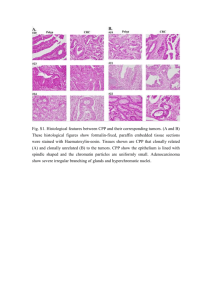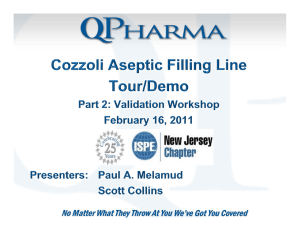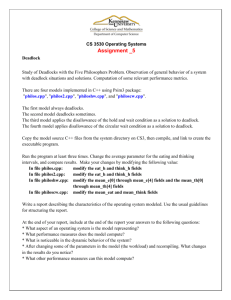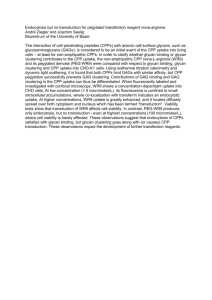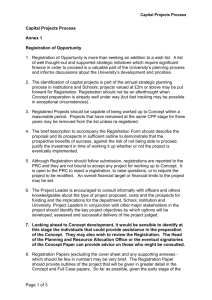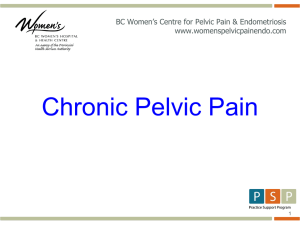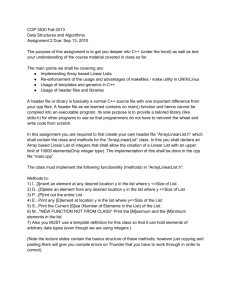AmAb (no CPPs) BLA 123XXX BLA 123YYY
advertisement
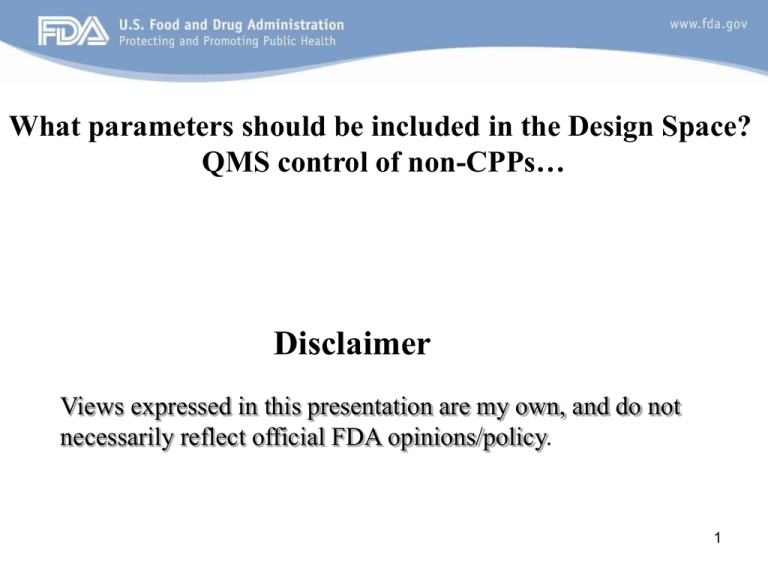
What parameters should be included in the Design Space? QMS control of non-CPPs… Disclaimer Views expressed in this presentation are my own, and do not necessarily reflect official FDA opinions/policy. 1 Protein A Column Parameters: AMab vs. ‘Standard’ BLA AMab (no CPPs?) BLA 123XXX BLA 123YYY WC-CPP 2 Through the Looking Glass What parameters should be included in the Design Space? QMS control of non-CPPs… 3 Regulatory Perspective on Design Space Definition-Points to Consider • How confident are we that CPPs have been correctly identified? Definition of CPP Critical “Describes a process step, process condition, test requirement, or other relevant parameter or item that must be controlled within predetermined criteria to ensure that the API meets its specification.” (Q7; 2001) CPP - A process parameter whose variability has an impact on a critical quality attribute and therefore should be monitored or controlled to ensure the process produces the desired quality. (Q8(R2); 2009) 4 Regulatory Perspective on Design Space Definition-Points to Consider • How confident are we that CPPs have been correctly identified? Definition of CPP Range (s) investigated/strength of data/info to support Range of CQA (e.g., HMW, HCP, DNA, virus removal/inaction) identified as being impacted by unit op Range of acceptance criteria for CQA Range of parameters and material attributes selected to study for a unit op Operating range of parameter studied Everything CPP Nothing CPP CPPs correctly identified 5 Regulatory Perspective on Design Space Definition-Points to Consider • How confident are we that CPPs have been correctly identified? Definition of CPP Range (s) investigated (Goldilocks paradigm) Interactions between CQAs, between PPs and between unit ops Scale dependence of data •What additional ‘regulatory commitments’ are present in the application. 6 Regulatory Perspective on Design Space Definition-Points to Consider • How will non-CPP ranges be handled after approval? Should not exceed the ‘knowledge’ space defined in the submission? • If the knowledge space is expanded after licensure, how will this be accomplished, what studies and acceptance criteria will be used to support new ranges, how will this be documented and how will the Agency be notified (type of supplement)? • How will non-CPP ranges be controlled, monitored and documented? How will non-CPP deviations be defined and identified? 7 8 Protein A CPP Examples Process 1 Load challenge Wash 1 [component] Elution flow rate Number of resin cycles Column height Process 2 Load challenge Elution buffer pH Elution molarity A-Mab Protein Load Elution buffer pH Without full details on the assessments, information and studies used to identify CPPs, plus information on design space being requested etc., a determination on whether these are acceptable can not be made. Parameter X range studied CQA Impact Process 1 (CPP) Process 2 (non-CPP, in DS) A-Mab (KPP) 9
